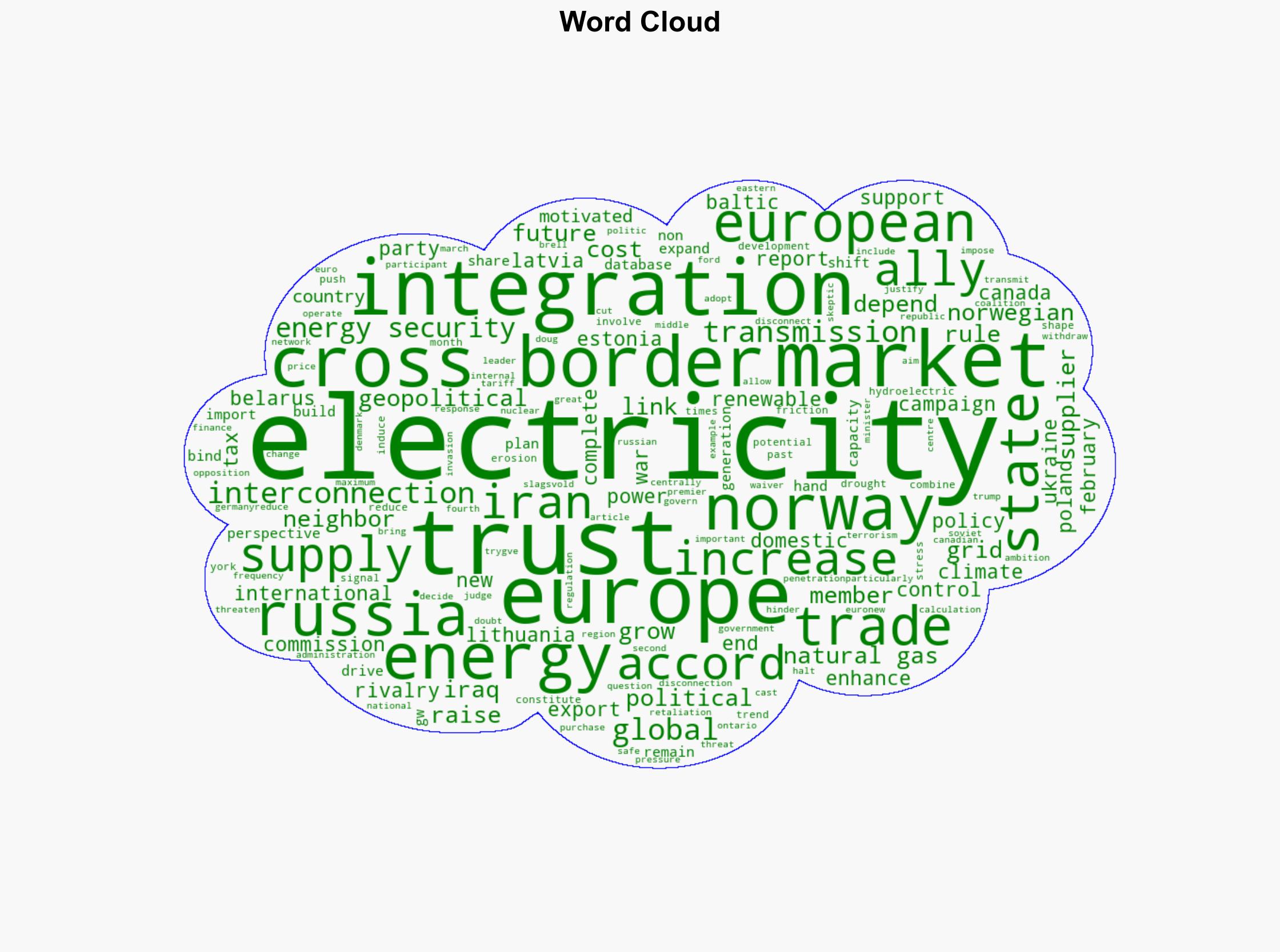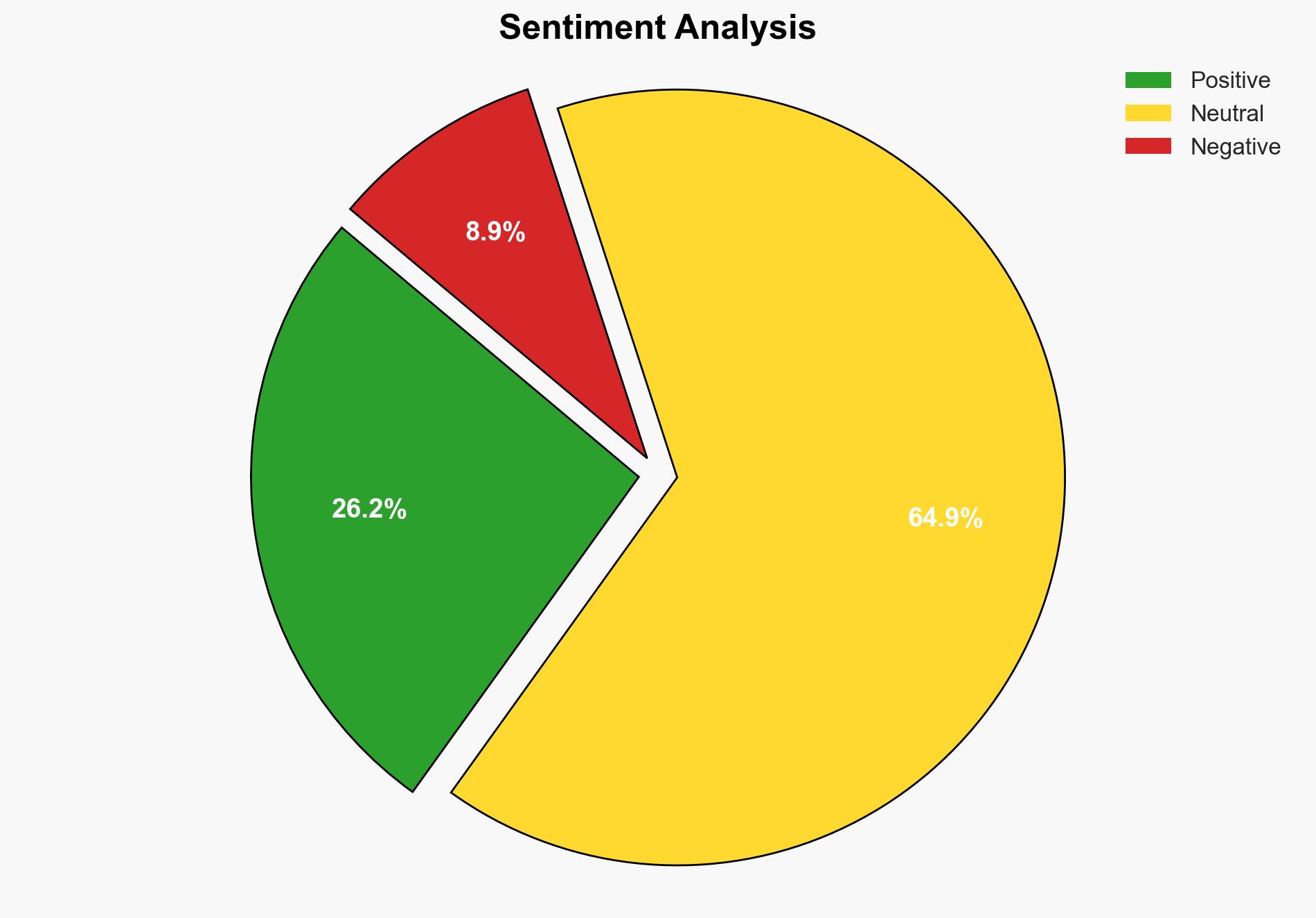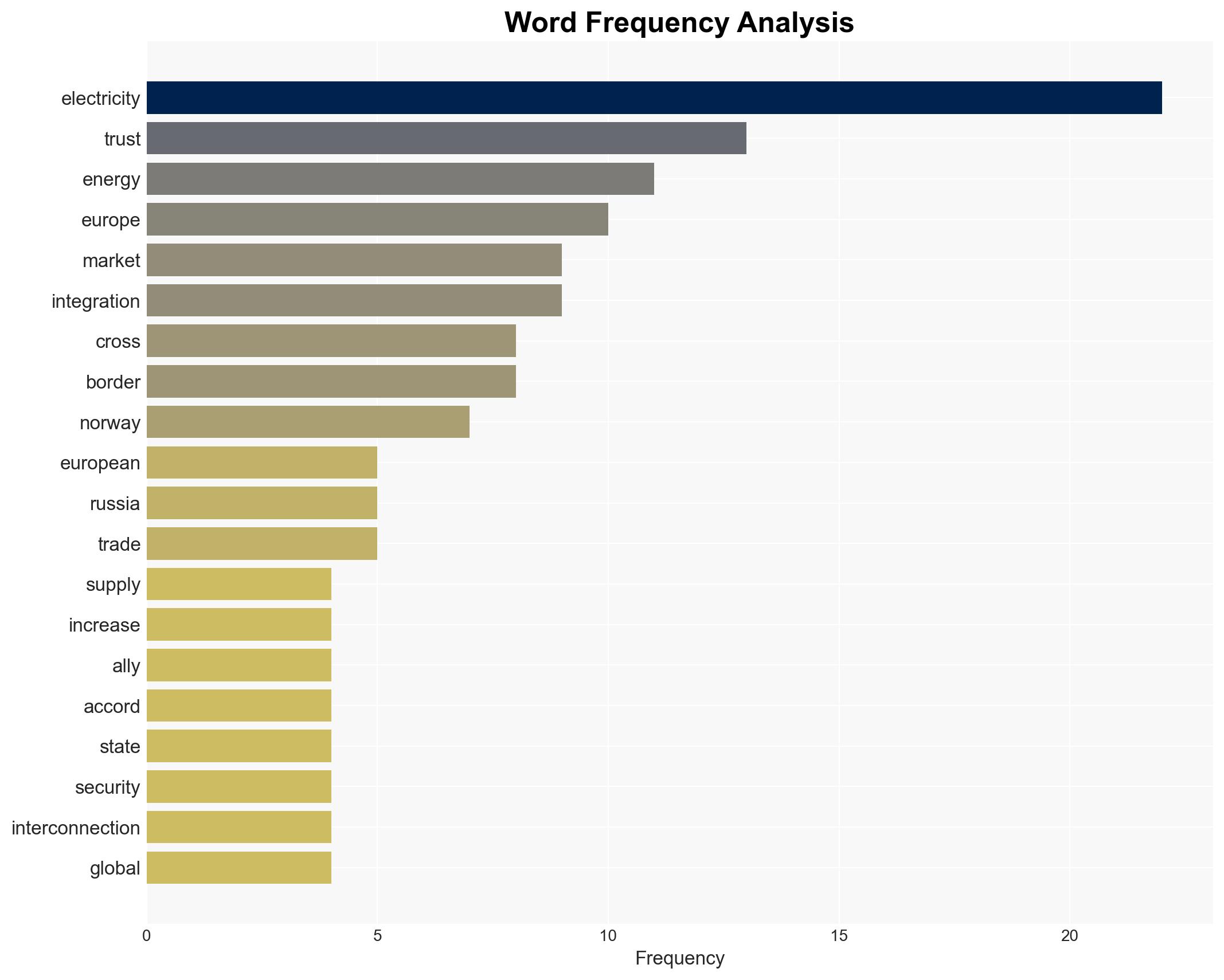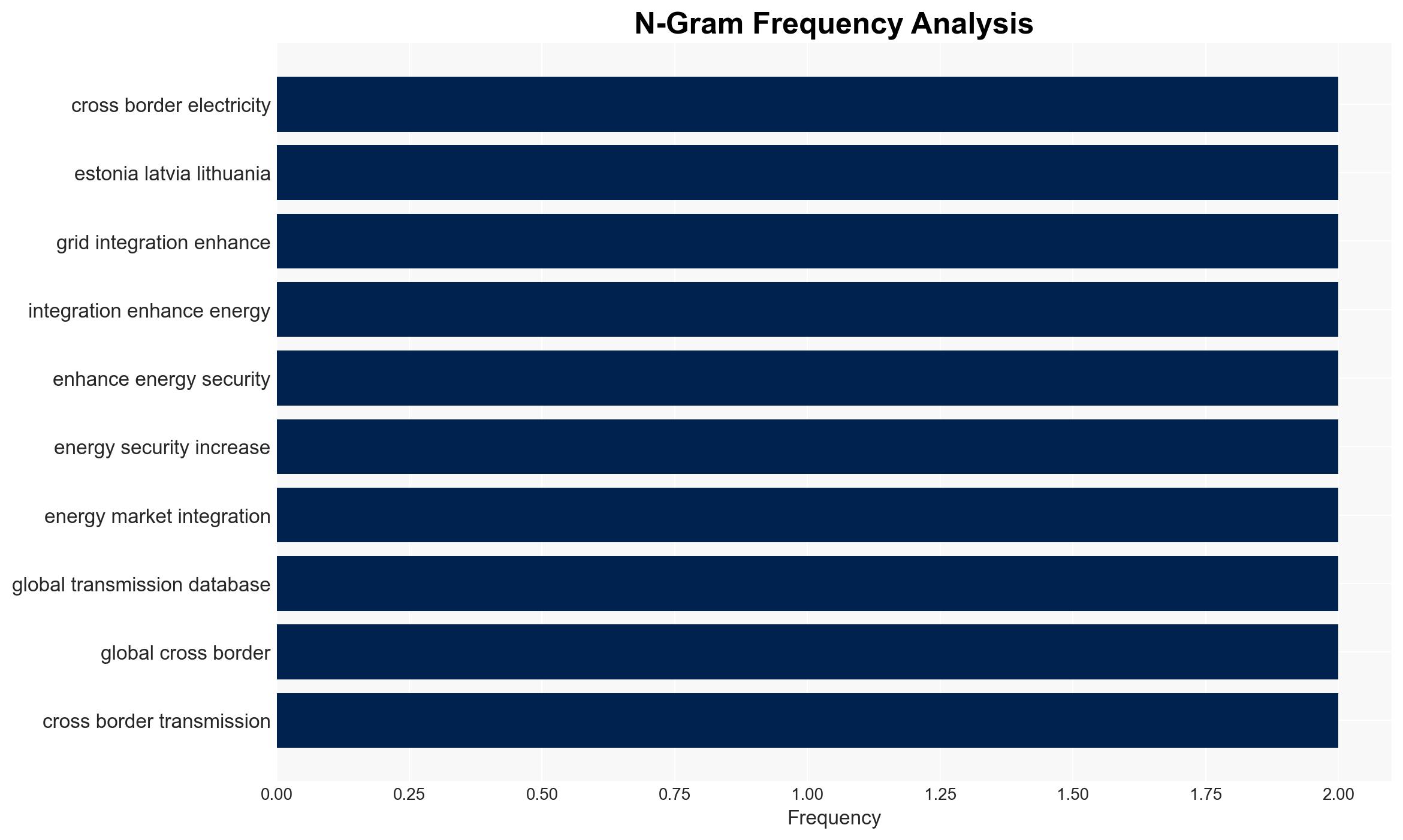How The Erosion Of Trust Challenges International Electricity Trade – Forbes
Published on: 2025-04-01
Intelligence Report: How The Erosion Of Trust Challenges International Electricity Trade – Forbes
1. BLUF (Bottom Line Up Front)
The erosion of trust in international electricity trade is creating significant challenges, particularly in Europe. Norway’s reduction in electricity exports due to hydroelectric supply stress and political shifts, alongside the Baltic states’ disconnection from the BRELL network, highlight vulnerabilities in cross-border energy integration. These developments underscore the need for enhanced cooperation and strategic planning to mitigate potential disruptions and ensure energy security.
2. Detailed Analysis
The following structured analytic techniques have been applied for this analysis:
General Analysis
Recent events indicate a trend towards increased friction in international electricity trade. Norway’s decision to reduce electricity exports to Europe, driven by drought-induced hydroelectric supply stress and political pressures, has raised power costs and strained market relationships. The Baltic states’ move to disconnect from the BRELL network, in response to geopolitical tensions with Russia, further exemplifies the growing distrust in regional energy cooperation. Additionally, Ontario’s threat to tax electricity exports in retaliation for tariffs on Canadian goods illustrates the potential for politically motivated disruptions in electricity trade.
3. Implications and Strategic Risks
The erosion of trust in international electricity trade poses significant risks, including:
- Increased energy costs and market volatility in Europe due to reduced Norwegian exports and political uncertainty.
- Potential energy security challenges for the Baltic states as they transition away from the BRELL network.
- Heightened geopolitical tensions impacting energy trade, particularly in regions with existing political conflicts.
- Economic repercussions from retaliatory trade measures, such as Ontario’s proposed electricity export tax.
4. Recommendations and Outlook
Recommendations:
- Enhance diplomatic efforts to rebuild trust and cooperation in international electricity markets.
- Invest in infrastructure to increase energy resilience and reduce dependency on single sources or networks.
- Encourage regulatory frameworks that promote transparency and stability in cross-border energy trade.
Outlook:
Best-case scenario: Increased cooperation and strategic investments lead to a more resilient and integrated international electricity market, reducing costs and enhancing energy security.
Worst-case scenario: Continued erosion of trust results in fragmented markets, higher energy costs, and increased geopolitical tensions, undermining regional stability.
Most likely outcome: Gradual improvements in cooperation and infrastructure, with intermittent disruptions due to ongoing political and environmental challenges.
5. Key Individuals and Entities
The report mentions significant individuals and organizations, including:
- Trygve Slagsvold
- Doug Ford
- Euronews
- The New York Times
- Bloomberg Opinion





